| Supreme Court Issues Decision in Hobby Lobby ...1 of 5 > |
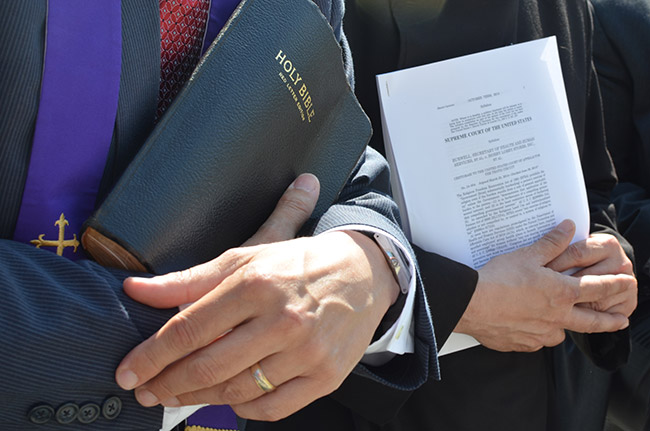 |
| March 25, 2014 - In a 5-4 decision [PDF] in Burwell v. Hobby Lobby Stores, Inc. (formerly Sebelius v. Hobby Lobby) the U.S. Supreme Court, citing the Religious Freedom Restoration Act of 1993, ruled that "closely held" for-profit corporations cannot be required to provide insurance that includes contraceptive coverage ("the contraceptive mandate") under the Affordable Care Act (ObamaCare) if they have religious objections to doing so. In the decision, written by Justice Samuel Alito, the majority found that "the challenged HHS regulations substantially burden the exercise of religion." "Because the contraceptive mandate forces them to pay an enormous sum of money—as much as $475 million per year in the case of Hobby Lobby—if they insist on providing insurance coverage in accordance with their religious beliefs, the mandate clearly imposes a substantial burden on those beliefs," the opinion stated. Conservatives hailed the decision hailed as "a landmark decision for religious freedom" [statements] while liberals denounced it as "an attack on women workers" [statements], |
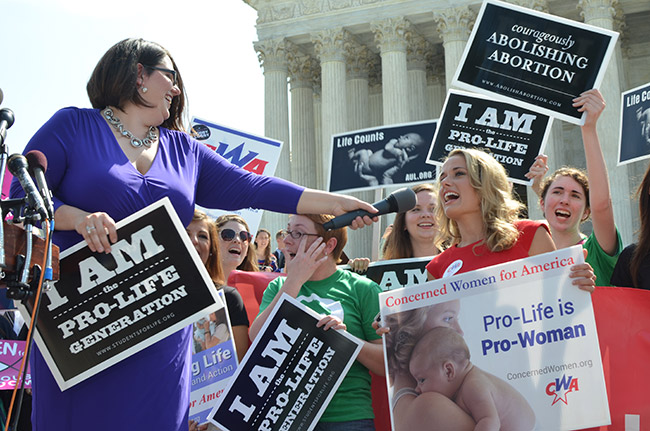 |
| Kristan Hawkins, president of
Students for Life of America, leads opponents of the contraceptive
mandate in chants. |
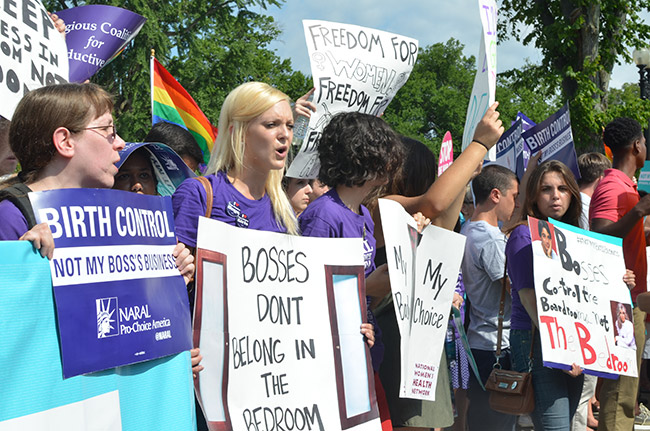 |
| Supporters of the contraceptive
mandate had signs with slogans such as "bosses don't belong in the
bedroom" and "birth control not my boss's business." |
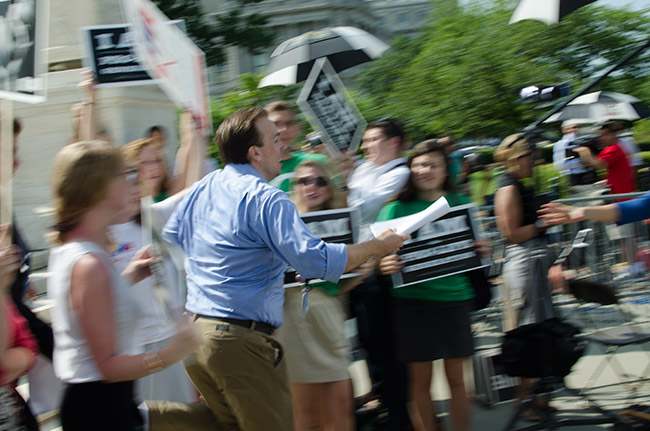 |
| The decision is out. Jason
Donner of FOX News Channel races to hand a copy to correspondent
Shannon Bream. |
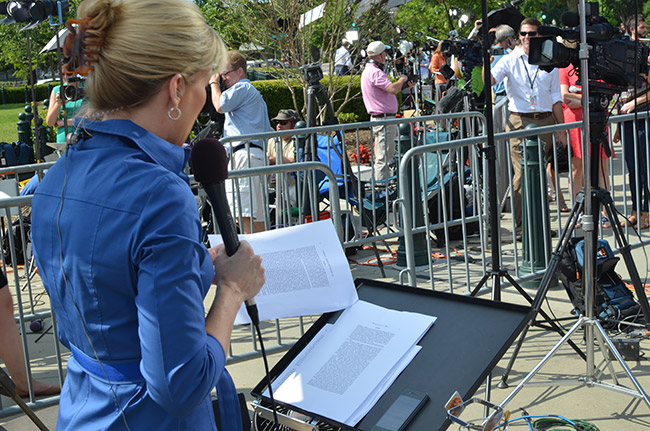 |
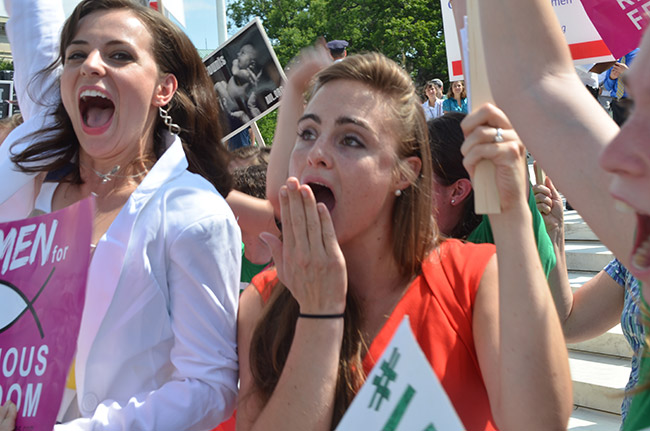 |
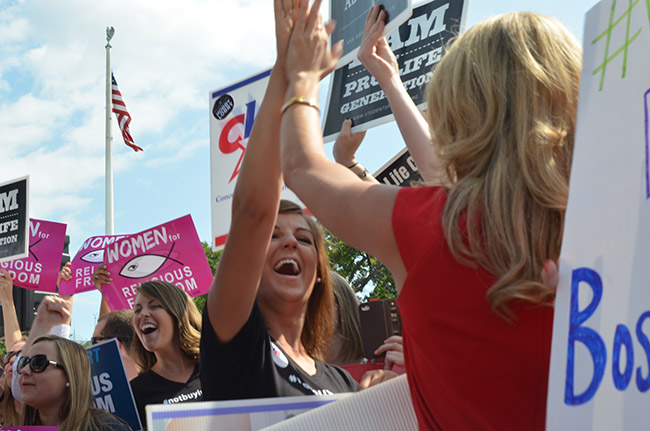 |
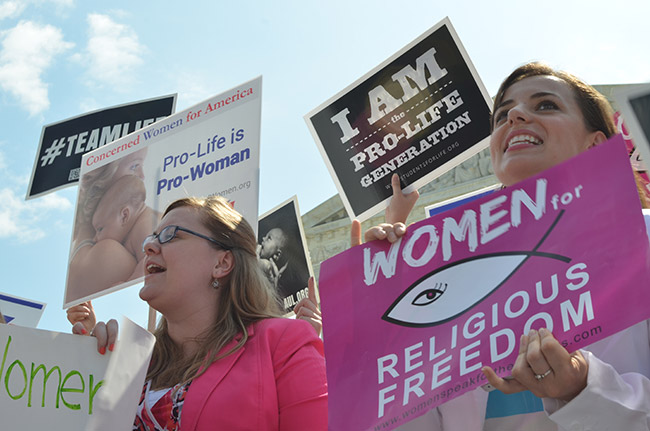 |
| Jubilation among opponents of
the contraceptive mandate. The Court's decision in Hobby Lobby addresses one of a number of challenges to the Affordable Care Act/Obamacare that are winding their way through the courts. For example on May 8, 2014 the U.S. Court of Appeals for the DC Circuit heard oral arguments in Priests for Life vs. the U.S Department of Health and Human Services (+). Another high profile case is being pursued by Little Sisters of the Poor and other Catholic non-profit organizations, who argue they "cannot comply with the Mandate without violating their religion, and that the government will impose massive penalties if they do not comply." Also today, in another case that drew considerable attention, the Court ruled 5-4 in an Illinois case, Harris v. Quinn, that home care workers cannot be forced to pay union dues. The justices considered home care aides as "partial public employees," and the decision was seen as a setback to public employee unions. Monday was the final day of the Court's October 2013 term. |
| next > |
Related: The scene when the Court heard oral arguments in Hobby Lobby three months ago. |

